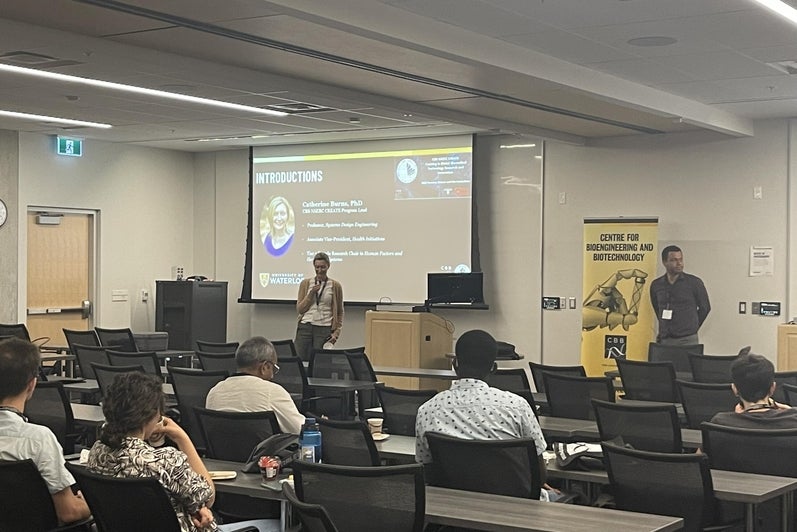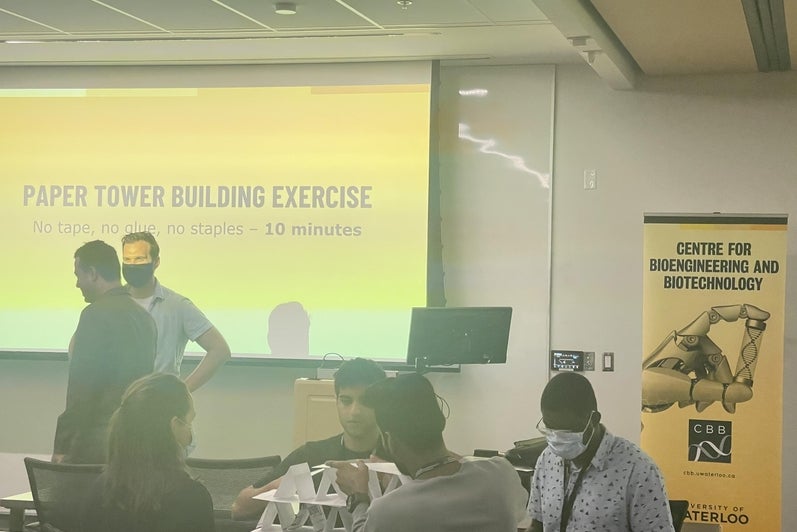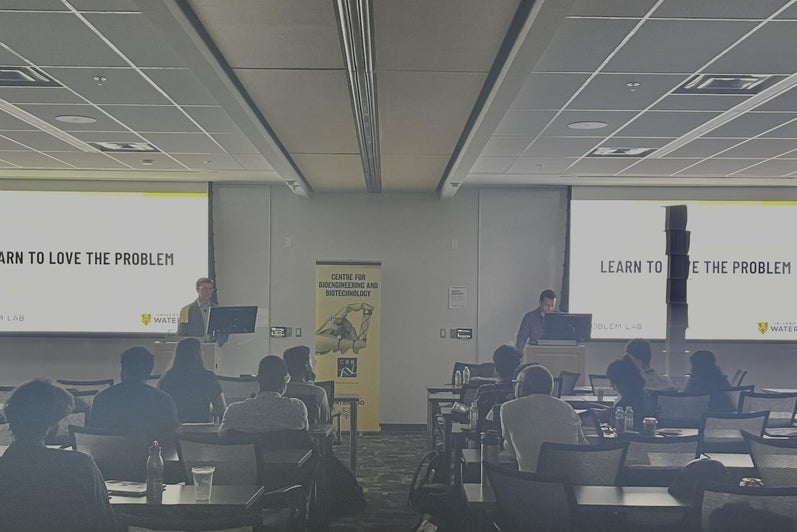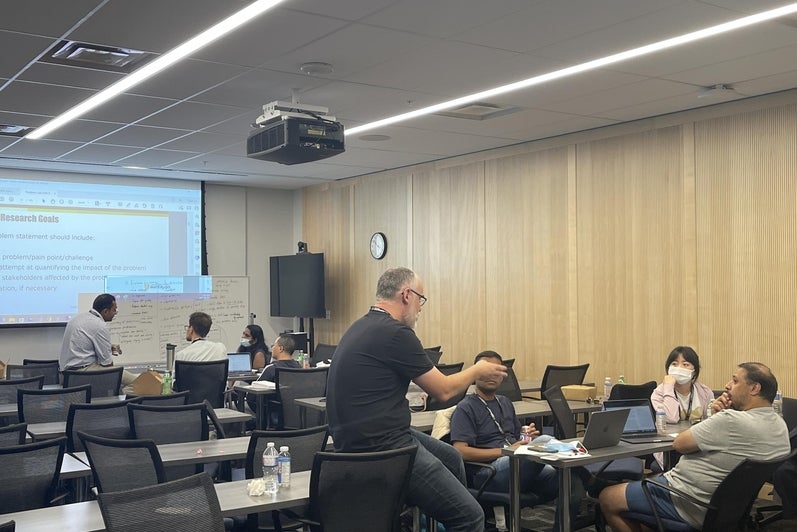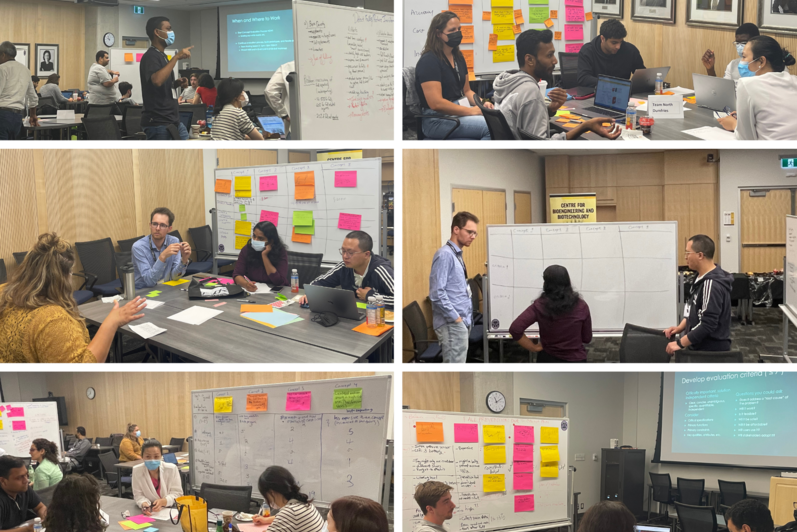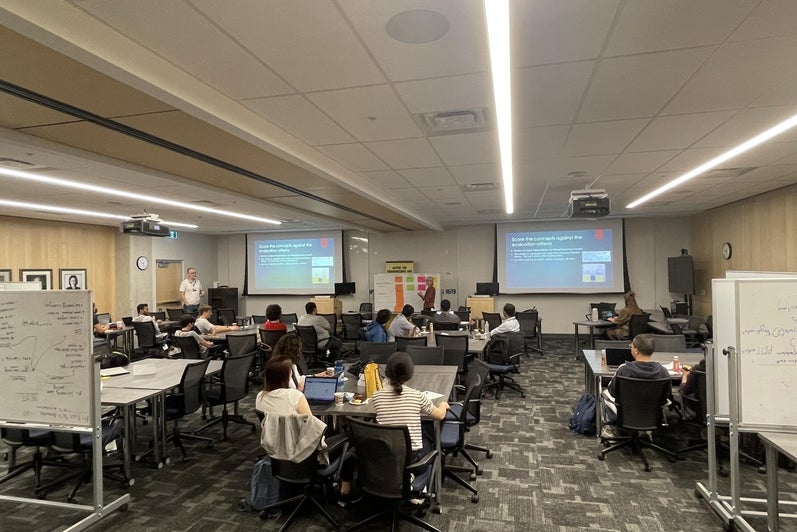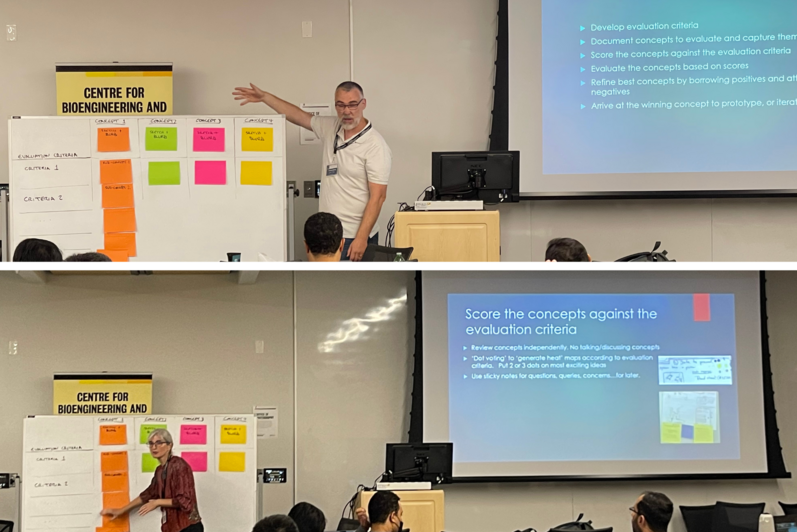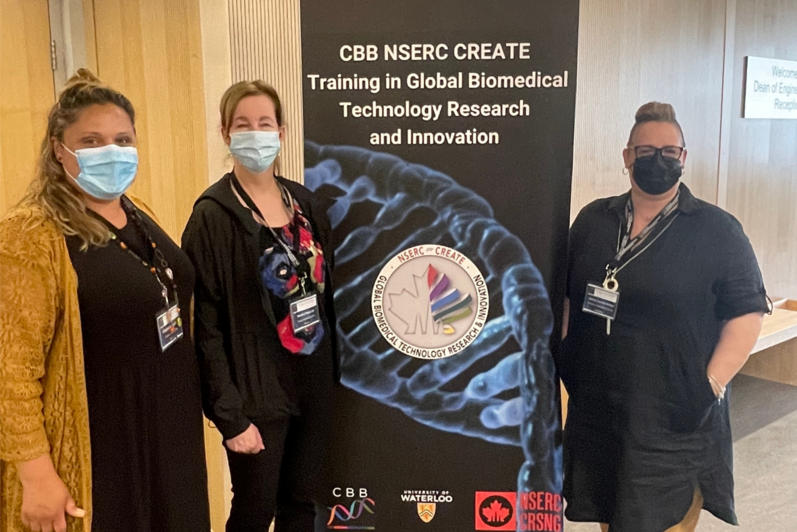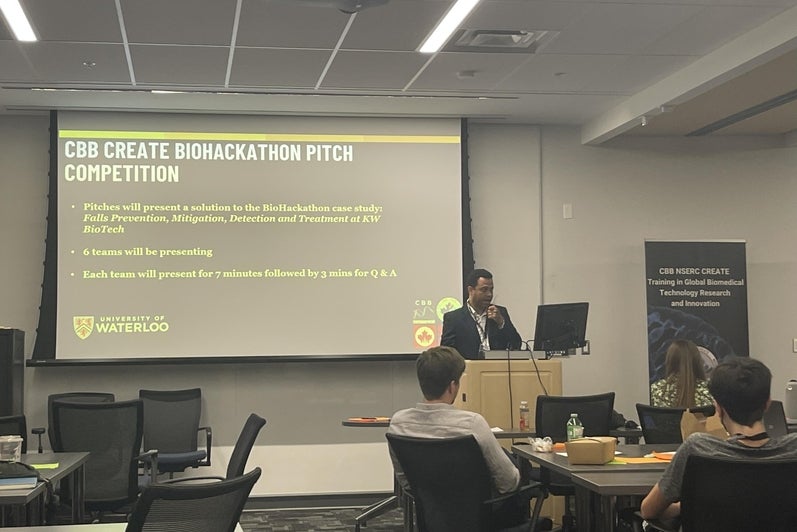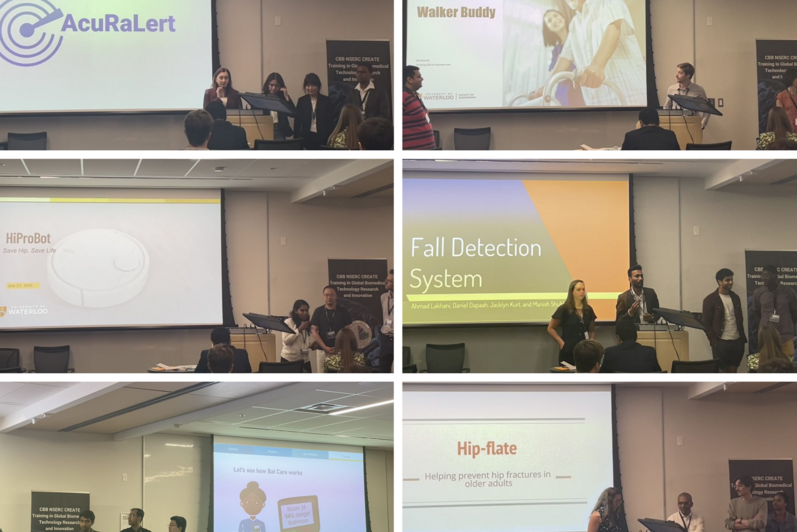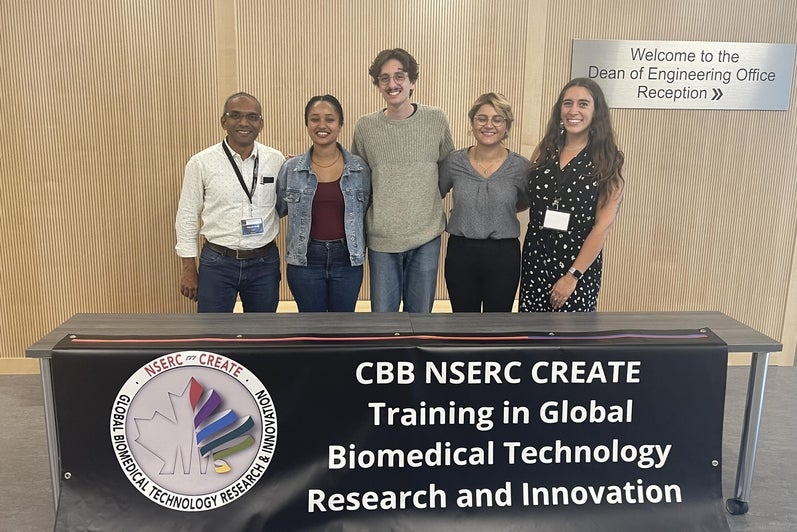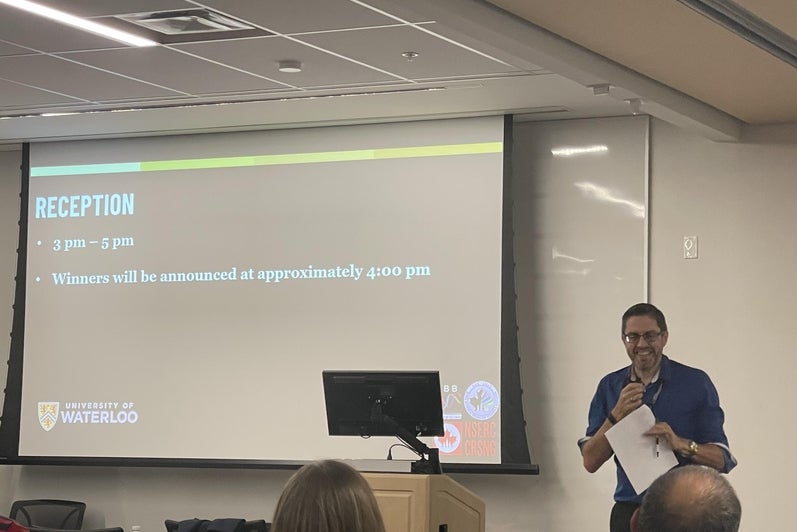
The NSERC CREATE Training in Global Biomedical Technology Research and Innovation program hosted its second annual Summer School and Bio-Hackathon from the 25th to the 27th of July 2022, with support from The Centre for Bioengineering and Biotechnology (CBB).
The goal of the annual Summer School and Bio-Hackathon is to bring together trainees, educators, and end-user stakeholders to co-design testable solutions that address a specific healthcare problem. In this year’s event, 27 trainees, 4 healthcare professionals, and 7 University of Waterloo educators worked together to address the important issue of falls, which are the leading cause of injury among older adults in Canada. To ensure that trainees had the necessary background knowledge to be successful at the Summer School and BioHackathon, the NSERC CREATE Training in Global Biomedical Technology Research and Innovation Program organised four preparatory lectures in the weeks leading to the event.
In the first of these lectures, PhD candidate Nargess Heydari Beni presented her research on falls prevention, detection and mitigation at Grand River Hospital (GRH), the project that inspired this year’s theme. The second lecture by Professor Lora Giangregorio outlined falls risk factors and associated interventions. The third lecture by Professor Rob Gorbet explored brainstorming and group idea generation, while the fourth lecture by Elise Vist of the Writing and Communication Centre (WCC) at the University of Waterloo taught trainees how to effectively present their final solutions to a multidisciplinary audience.
The 3-day Summer School and BioHackathon featured workshops, team working sessions, laboratory demonstrations and a concept pitch competition. Trainees were assigned to interdisciplinary teams and coached by Waterloo Professors, Maud Gorbet, Thomas Willet and George Shaker as they ideated solutions. Graeme Beaton from the Centre for Career Action introduced key features of productive teams, which enabled the trainees to openly collaborate. This was instrumental in ensuring trainees would draw strengths from each of their team members' diverse experiences and knowledge. Ben Graham from the Problem Lab inspired trainees to ‘Love the problem,’ by demonstrating how to do effective problem analysis to uncover valuable, actionable insights, and the importance of communication when pitching research to stakeholders.
The lab demonstration in Professor James Tung’s Neural and Rehabilitation Engineering Lab showcased concepts in falls and how they can be tested. Trainees delved deeper into the problem space during this practical and hands-on session. The concept evaluation and testing workshop facilitated by Professors Maud Gorbet and Thomas Willett equipped trainees with the skills to apply concept evaluation tools and techniques to select, develop and reformulate testable conceptual designs. Additionally, trainees used convergent brainstorming to narrow down concepts and generate their final solution, with an emphasis on how they could test their concepts.
Victoria Crowder-Bansen, RN, DN, Chantelle Archer, RN, and Sandra Paleczny, RN from Grand River Hospital, and Ghea Salarda, RN from Revera Columbia Forest Long Term Care Home mentored each team and graciously shared insights into the end-user experience of their possible solutions. This process allowed teams to re-evaluate their concepts and validate them through the mentorship provided by these clinicians.
All the teams’ hard work culminated during the pitch competition on the final day of the event. Jirina Poch from the WCC assisted trainee teams as they prepared their pitch presentations. The pitch competition was judged by CBB Executive Director, Professor Clark Dickerson, GRH Research Administrator, Sarah Laferriere, and Waterloo Associate Vice President of Entrepreneurship and Commercialization, Professor Karim S. Karim. Each team presented innovative solutions to the problems and challenged the judges in selecting a winner. The winning pitch showcased the “Hip-flate”, an inflatable device designed to protect the hip during a fall.
The CBB CREATE Team is grateful to all of the organizers, speakers, coaches, mentors, judges and trainees who committed their time to this 3-day learning experience and made it a great success, and is already looking forward to the 2023 Summer School and Bio-Hackathon!
